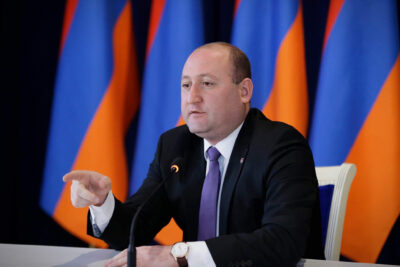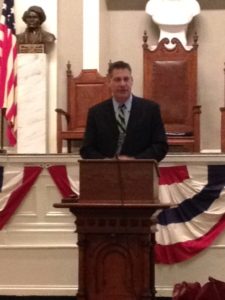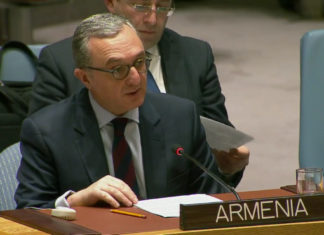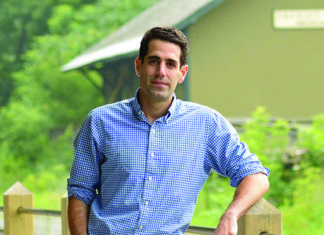Mirror-Spectator Staff
BOSTON — Tea, hand-woven rugs and prostitutes, on the surface, seem to have very little in common. However, according to speakers at the K. George and Carolann S. Najarian MD Lecture on Human Rights on October 24 at Faneuil Hall, they often involve trafficked persons.
On the demand side, keynote speaker Siddharth Kara explained, consumers want to pay less and less for goods, thus a product made by slave labor, by definition, will be cheaper than one made by a regular workforce. “We as consumers prefer lower prices and capitalize on a low-wage, unregulated market,” he said.
The industries that use slave or trafficked labor include frozen shrimp, tea, coffee, hand-woven carpets, rice, potato, corn, granite and limestone, apparel and sporting goods.
The speakers at the podium by turns scared, horrified and encouraged the audience, speaking about the incredible prevalence of trafficking both near and far.










